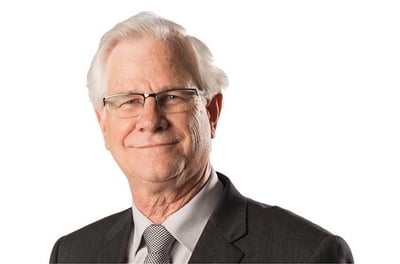Mind of Jacka: No
Blogs Mike Jacka, CIA, CPA, CPCU, CLU Oct 17, 2024

I did something today that I haven’t done in a very, very long time. It’s something all the books say you should do. It’s something all the experts say you should do. And it’s something I’ve told others to do. But there I was, not practicing what I preached. So, I did it.
I said, “No.”
There were a lot of reasons to accept the engagement I was offered: a nice challenge, a lot of fun, a location that interested me. But there were also more than a few reasons to decline. (I won’t go into all of them. Suffice it to say I had my reasons.) And so, decline I did. As recently as a few months ago, I’m not sure I would have turned it down. But I said no. And I’m glad I did. To be honest, it is rather freeing.
For all of us, our disinclination to say no comes from a very human trait. We all like to be liked. And we want to be wanted. And part of feeling liked and wanted comes from accepting requests for help from others. If we say no, they might not like us anymore. And, yes, this is a bit of a simplification. But there is truth within it.
There is a story told by studio musicians. (Those are the people who, while not part of the band, are so good they are brought in on the recording sessions. If you want to learn more about these incredible musicians, a documentary you can start with is, “The Wrecking Crew.”) As soon as they get that first call, they never say no to the next ones. Their fear is that the minute they say no to one gig, their name will drop down on the call list. And then they get fewer and fewer calls. And then their greatest fear that people will say about them, “Hey, do you remember so-and-so? Are they still around?”
And we all have a little of that fear in each of us, that the minute we say no, other’s estimations of us will fall. Internal audit is particularly susceptible.
Our profession is not one of the most popular. Yeah, I know there are some places where internal auditors are actually treated like human beings and hail fellows well met. (I worked in one of those.) But even in those situations, internal auditors can still feel like second-class citizens.
So, when someone comes a-calling looking for our help, we very seldom turn it down. Without thinking too hard about what the schedule looks like or if that is an important risk or how it will impact work or even who will do the work, we jump at the chance to be a part of the team and help out. They like us, they really like us.
And accepting these offers is a good thing. Except when it isn’t.
As one example, (and, as I always do at this time, I remind you that the experiences I am relating are from a number of years ago and the current audit shop does not work the way it did in days of yore), we were asked to check some figures before bonus checks went out. There had been problems in the past and those errors had besmirched leadership’s reputation. So, they turned to us to ensure the numbers were right.
Look closely at that previous paragraph. See what’s wrong? Yeah, we were the control. Now, I will defend our accepting that task…one time. One time! The problem was that the organization’s leadership liked it so much, we continued to do that small favor for many years. It became an unquestioned addition to our annual planning. We had become the control.
One favor and one yes that turned into a lot of yesses — when it should have been one yes and a series of No’s.
There are other examples of taking on tasks that weren’t the highest risk or for which we didn’t have the time. But I’m sure you can look back at your own history and see times when you should have said “No.”
It’s a delicate move. And, just like my recent choice, it is balancing the opportunity with the risk. In my case, the opportunity was doing something different and interesting; the risk was not having the time to properly devote to it and, ultimately, providing poor service.
Any time someone puts in a request to internal audit, the same weighing of opportunities and risks must be completed.
“No” is a powerful word. And it is one most of us don’t like using. But avoiding it can be even more costly than failing to use it.


